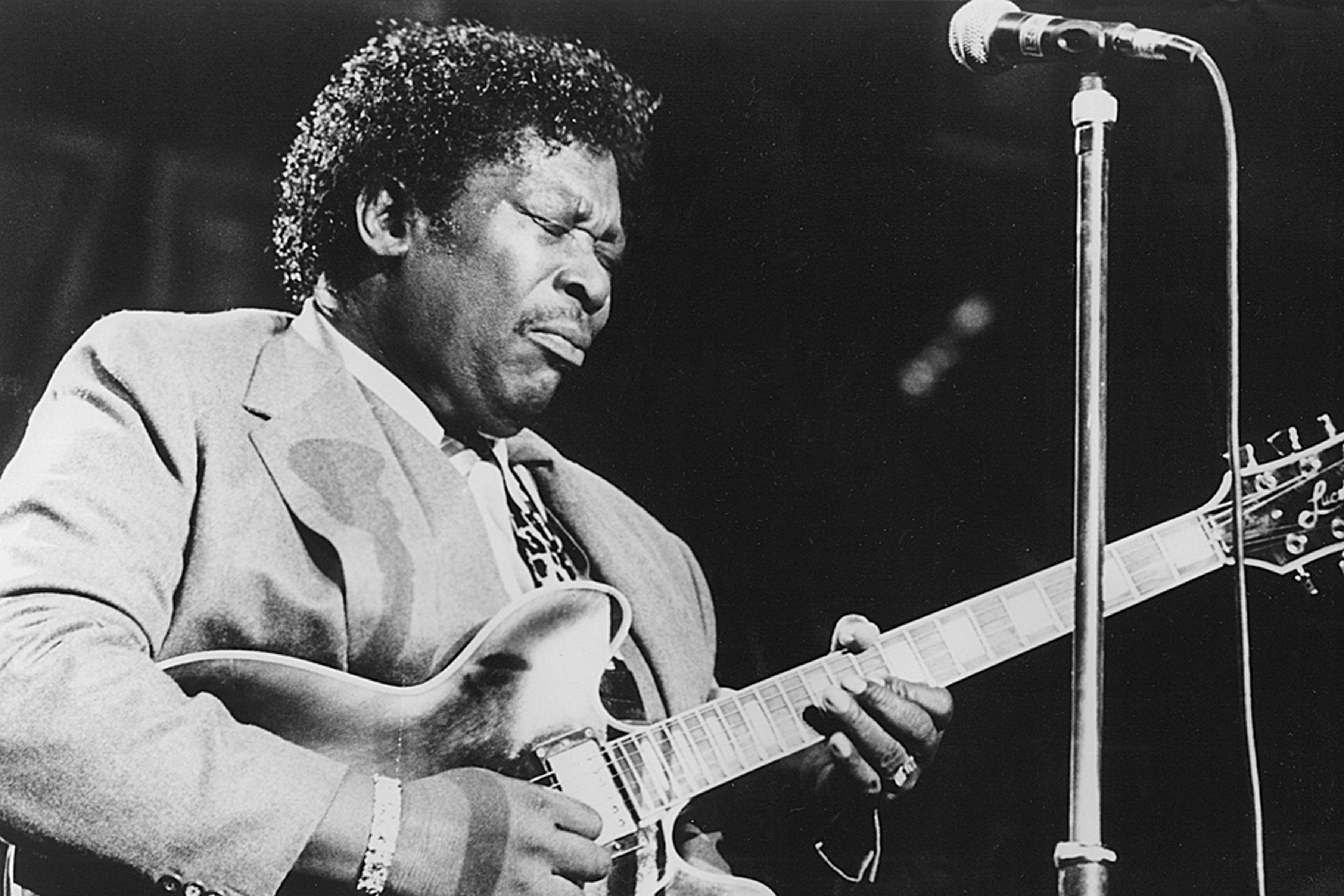B.B. King: Blues Royalty
B.B. King is blue about the blues.
As the best-known practitioner of the musical style, King is concerned that there may be no heir apparent to his crown in a dying art. He decries the fact that, for the most part, the blues remain ignored by the general audience.
“All you have to do is listen to the radio and there’s your answer,” King said in a recent interview. “You can hear all types of music: rock, soul, disco, jazz, but almost never the blues. The music’s just not promoted like it should be.”
The brush-off by radio has kept King on an endless campaign to bring the blues to the people. In 1956, he played 342 one-nighters. Twenty-six years later, he’s still singing the blues on 300 dates annually.
King has played his music throughout this country, South America, Europe, Africa and the Soviet Union. He’s found the blues is universally spoken – even in Russia where records of Western music were long not permitted.
“The blues is as popular over there as it is here,” King said, trying to show that the U.S. has essentially ignored the musical form.
Why then has he managed to survive 35 years in the business?
Well, King can’t compare himself to other blues artists – “That would be like comparing Barbra Streisand to Anne Murray,” he says – but he thinks much of his success has been the result of surrounding himself “with good people.”
“I’ve kept visible on the tube, too,” he added. “I’ve worked so much that it’s been hard for people to forget me.”
King also has managed to forge himself a steady place in the music industry by incorporating other styles into his blues, a practice which has disappointed purists but kept his records interesting.
“I think that’s the reason I’ve survived,” King said. “Had there not been some change in my music, I think I wouldn’t be around today. I wouldn't be playing 300 days out of the year if there wasn’t still a market for me.”
King’s dedication to bring the blues to the people has brought him into at least 40 prison concerts in the past 10 years. He continues to insist on performing for the captive audiences.
Obviously, the thrill is not gone for King on the road, because he is determined to keep the blues sound alive. Unfortunately, he contends there doesn’t seem to be enough musicians appearing on the scene who will carry on the blues tradition.
King thinks anybody can sing the blues, even – contrary to the opinion of some – white singers.
“It’s not the soul or color of the skin that counts, it’s the diction,” King said. “Blues singers don’t use good English because that’s not the nature of the music. The line, ‘Now here it is 3 o’clock in the morning,’ is very bad grammar but it fits well with the music.”
“People have preconceived notions about the blues, but there’s no such thing as what a blues singer has to look like.”
The stereotyped image, which King has often described, is an old fat guy sitting on a stool looking north, with the bib of his cap turned south; a cigarette hanging from his lip looking east and a jug of homemade whiskey to his west, while playing an old and beat-up guitar.
By those standards, King would appear regal, always performing attired in a well-fitting, three-piece suit.
For King, singing the blues has always been a tailor-made proposition. He was born Riley B. King on a cotton plantation near the Mississippi Delta town of Indianola.
His introduction to music came through religion and he bought his first guitar with a borrowed $15.
He left farming for the “chitlin’ circuit” with his constant companion, “Lucille.” He’s called his guitar by that name ever since he rescued it from a club fire started by two men brawling over a female cook named Lucille.
In 1949, King recorded his first No. 1 blues hit, “Three O’Clock Blues.” From that point on, King built such a reputation that many rock musicians would name him as a major influence on their careers years later.
King scored his biggest hit in 1971 with “The Thrill Is Gone,” which was a million seller as well as a Grammy Award winner. He later received another gold record for his due effort with Bobby Bland, “Together for the First Time.”
Over the years, King has recorded more than 300 songs and at least 60 albums.
